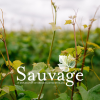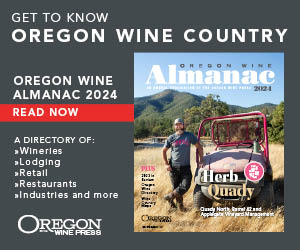Frozen in Anticipation


By Stuart Watson
An early, deep freeze has left several Eastern Washington vineyard managers with little more than a slim hope that they’ll get a marketable grape harvest this fall.
Growers throughout the Columbia Basin have reported spot cold damage, but vineyards in the Horse Heaven Hills appear to have been worst hit.
Shane McKibben has managed the 200-acre Les Collines Vineyard near Walla Walla, Wash., for the last 22 years. He estimates he suffered 10 to 20 percent bud loss from a precipitous drop in temperature during Thanksgiving week.
He says gradual cooling is optimal for vines to harden against the cold. October and early November cold snaps catch vines at a vulnerable time. By December, vines have adjusted.
Generally speaking, he says, “anywhere from 5°F or above, you’ll be fine, but once you get below that or in negative numbers, you’re looking at some bud damage.”
He says the cold hit the entire east side of the state. His own vineyard dropped to 1 or 2 degrees below zero. “We have a lot of live buds out there,” McKibben said. “If buds get frozen, you cut them, and if they’re still green, they’re still alive. If they’re black, they’re dead.”
Different grapes respond differently to the cold. “Whites are the toughest of them all — Riesling, Semillon,” he said. “Cabernet Sauvignon is the toughest red, Syrah is in between, and Merlot is not so hardy. Malbec is the weenie of the bunch.”
He says he won’t know his true situation until the end of February. But at this point, he believes he dodged a bullet — compared to growers farther west. “We fared better than most,” he said. For his downstream customers — including Roots Wine Co. near Yamhill and King Estate near Lorane — the news isn’t great, but it could be worse.
“I’ve heard some horror stories,” McKibben said. “In the Horse Heaven Hills and that area, there are guys that got completely burned.”
Mike Andrews at the Coyote Canyon Vineyard and winery in Alderdale is one.
“On that November freeze, in our 1,135 acres, we have about 135 acres with very little damage, but the rest of the vineyard has pretty extensive damage,” he said.
Unless the vineyard recovers better than he currently expects, Andrews says the loss could run to “several million dollars.”
He sells 99 percent of any grapes he harvests, so that dire forecast bodes ill for wineries counting on Coyote Canyon juice. Cana’s Feast near Carlton and Marchesi Vineyard near Hood River have purchased his grapes in the past.
Temperatures dropped about 60°F — to 2° to 7° below zero — around Nov. 24, Andrews says.
“I can’t predict what we’ll have, but I anticipate we won’t have much of a crop,” he said. “People are cutting buds, assessing the damage. It looks to be pretty much all the primary and secondary buds are frozen. When that happens, you probably won’t have a crop.”
He says this is a first for him. His grandfather started the farm in the 1940s, and Mike planted his initial grapes in 1994. “This is the first damage of any extent since I’ve been here,” he said.
He says the vineyard has added about 700 acres since 2006, so many of its vines are younger. They’ll survive. Their buds? Not so much. He says crop insurance will help.
At this point, he’s hoping to salvage some Chardonnay, Mourvedre, Merlot, Cab Franc and maybe 50 acres of the 600 planted to Cabernet Sauvignon.
“The hard part is nobody can tell you with 100 percent certainty until you see what things look like in the spring,” he said.
Exactly, says neighboring grower Justin Andrews of McKinley Springs Vineyard. With 2,000 acres to oversee, he says he can’t assess damage until spring. He thinks the Cab and Merlot may pull through better than the Syrah and Malbec.
McKinley Springs sells to Elk Cove Vineyards in Gaston and Gino Cuneo Cellars in Carlton. “Those two wineries might be affected,” he said. “Our Barbera got hit a little more.”
Andrews says 2010 was the “best year” for McKinley Springs. And 2011?
“It’s hard to say if it’s a total disaster,” he said. “It’s not a total loss. But it’s hard to tell until after the plant starts to grow.”
As with most things weather-related, the situation varies depending on whom you consult. At the western end of the Columbia Gorge, Rich Cushman, winemaker at Viento, says he thinks he’ll be OK with his single Washington source, Lonesome Spring Ranch near Benton City.
“Owner Colin Morrell hasn’t indicated he has had any problem with freeze damage,” Cushman said.
Cushman recalls a winter freeze in 1996 that decimated the Grenache harvest. He also recalls -16°F in the winter of 2004 that hit the Walla Walla vineyards hard.
“But that situation was probably not as bad as the freeze this year, when vines were barely even dormant yet,” Cushman said.
A veteran newspaper and magazine reporter and editor, Stu Watson owns Watsonx2 Communications in Hood River.








